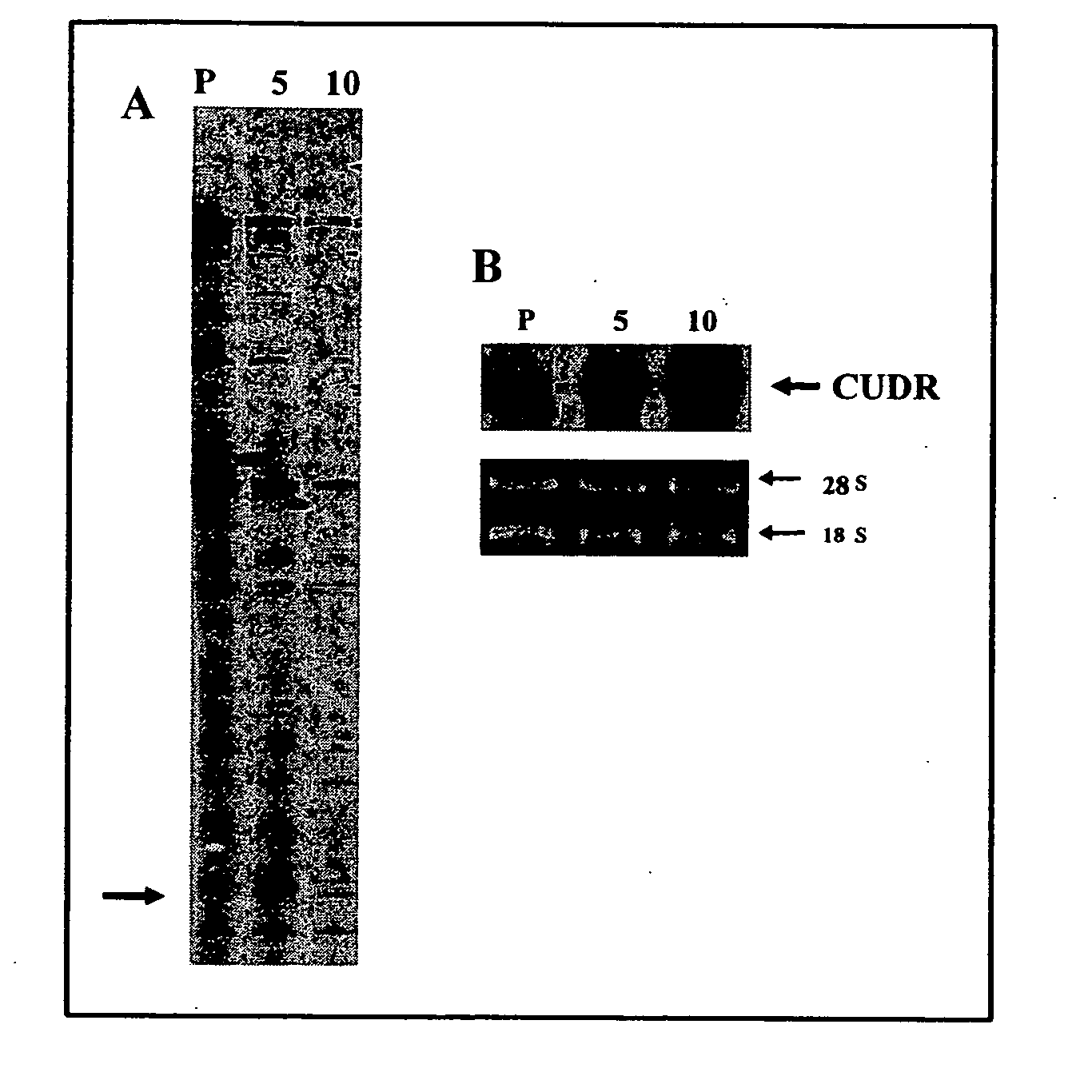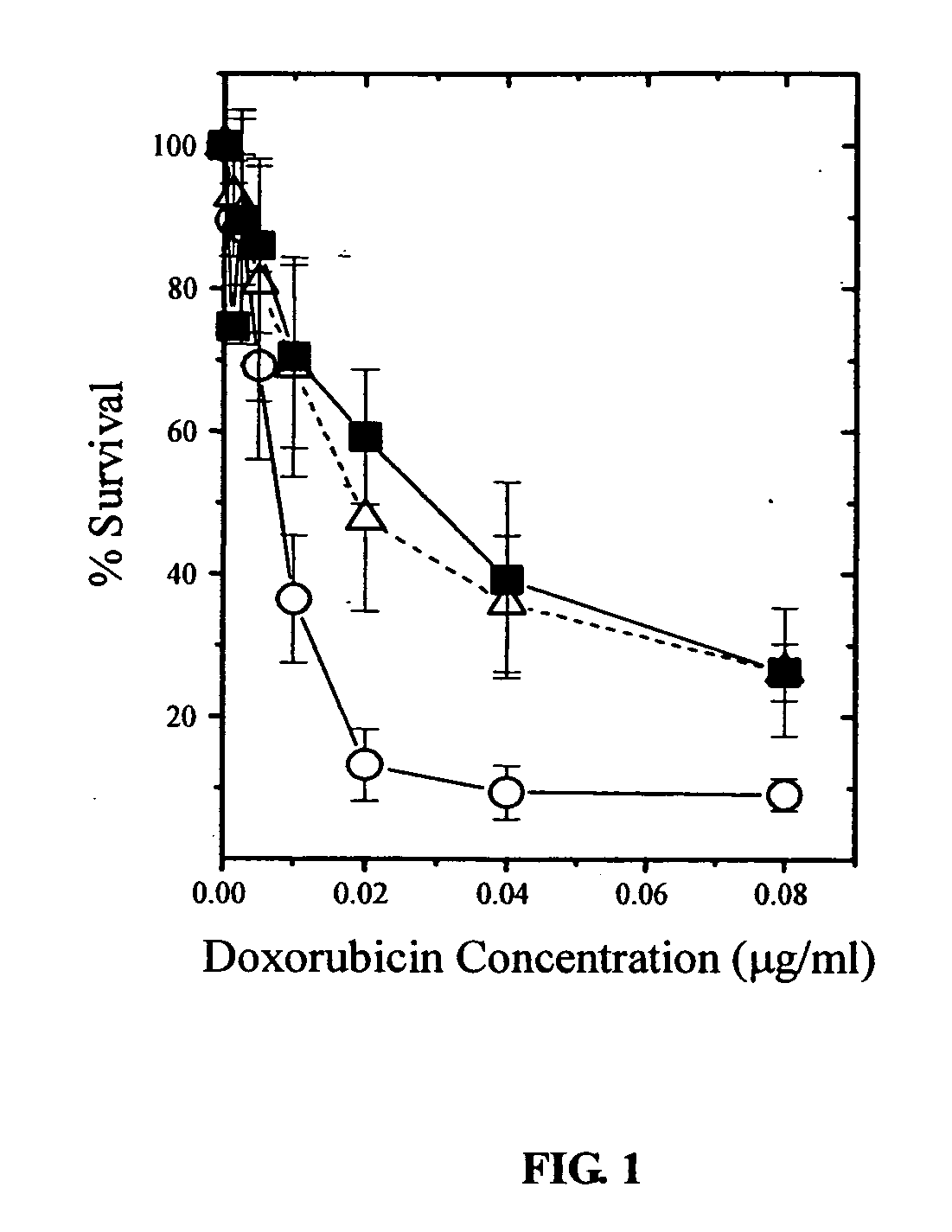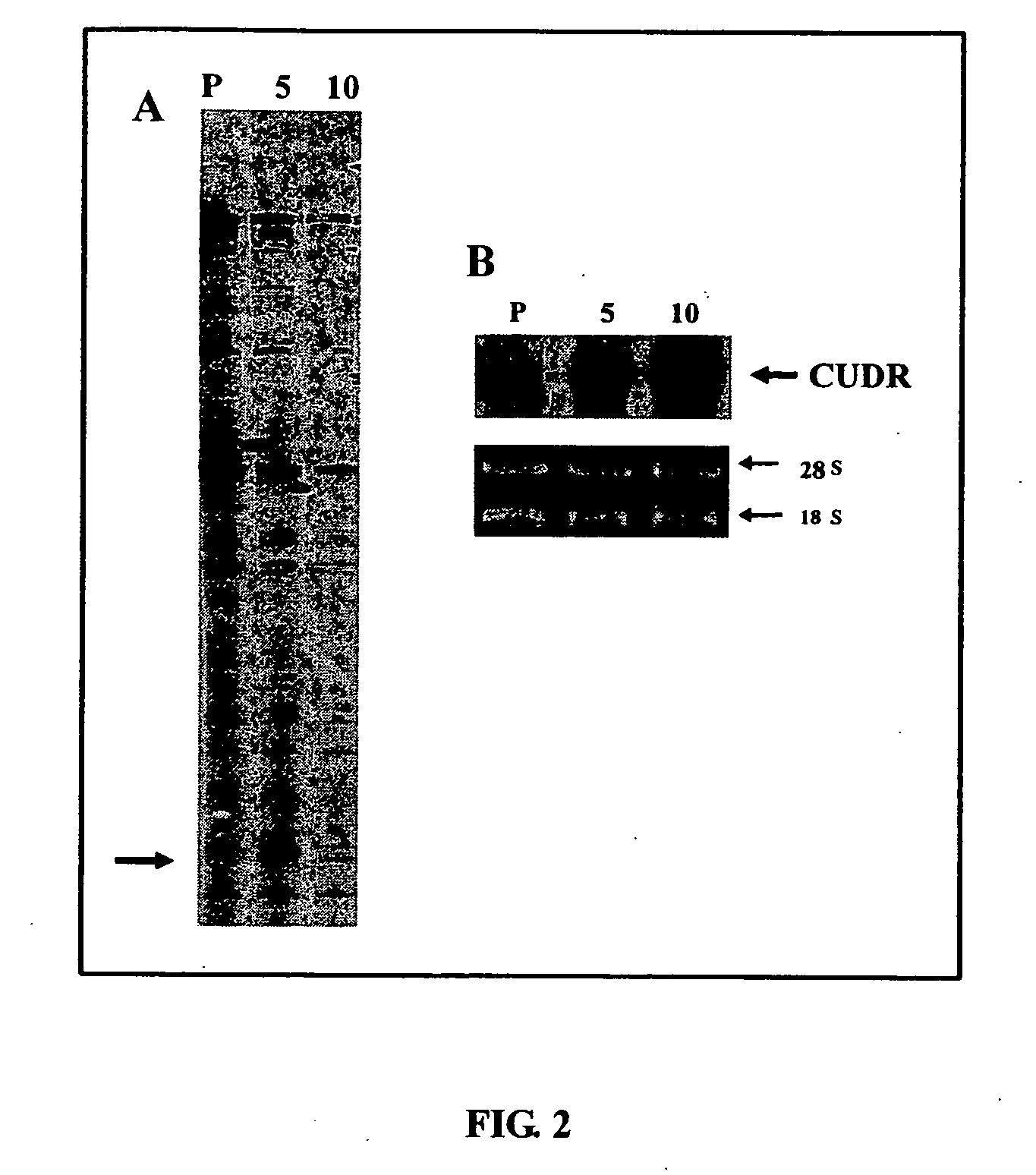CUDR as biomarker for cancer progression and therapeutic response
a biomarker and cudr technology, applied in the field of cudr in the human body, can solve the problems of preventing widespread use of cudr in diagnosis, affecting the treatment outcome, and affecting the clinical outcome of patients,
- Summary
- Abstract
- Description
- Claims
- Application Information
AI Technical Summary
Benefits of technology
Problems solved by technology
Method used
Image
Examples
example 1
Response of Different A431 Sublines to Doxorubicin by MTT Assay
[0107] Responses of A431 parent cells, A5A and A10A cells to doxorubicin (DOX) were compared in this Example.
[0108] A431 / A5A cells were A431 cells survived from treatment with 5 μg / ml of DOX, and A10A cells were derived from A5A cells survived from treatment with 10 μg / ml of DOX.
[0109] Cells were seeded in 96-well plates for 2 days and incubated with various concentrations of DOX for 5 days. At the end of the incubation, the cells were incubated in 50 μl of a 0.1 mg / ml solution of 3-[4,5-dimethylthiaol-2-yl]-2,5-diphenyltetrazolium bromide (MTT) at 37° C. for 3 h and lysed in 150 μl of dimethyl sulfoxide at room temperature for 30 min. The absorbance of each well was measured at 580 nm in a microplate reader. The survival percentage of cells was calculated as the ratio between cells with drug treatment and cells without drug treatment.
[0110] The results averaged from 5 separate experiments are shown in FIG. 1, O: A43...
example 2
Isolation and Identification of Target Genes
Isolation of Differentially Expressed mRNAs
[0112] The isolation of differentially expressed mRNA between A431 parent cells and drug resistant A5A and A10A cells was carried out by using the RNAimage Kit (GenHunter Corporation, USA). Briefly, 0.1 μg / μl of DNA-free RNA was reverse transcribed with MMLV reverse transcriptase, 20 μM of dNTP and one-based-anchored oligo-dT primers, followed by PCR reaction in the presence of short arbitrary primer, 2 μM of dNTP and [α-35S]dATP for 40 cycles of the following parameters: 94° C. for 30 sec, 40° C. for 2 min, 72° C. for 30 sec followed by 72° C. for 5 min. RT-PCR products were resolved in 6% denaturing polyacrylamide gel until the xylene dye in the gel reached the bottom. The gel was blotted onto a 3M paper and dried under vacuum at 80° C. for 1 h. The differentially expressed cDNA pattern was visualized by autoradiography.
[0113] The results are shown in FIG. 2. The autoradiograph in FIG. 2A in...
example 3
Northern Blot Analysis of CUDR Expression in Different Human Cancer Cell Lines
[0116] The expression of CUDR in different human cancer cell lines was examined. 10 μg of total RNA was run in each lane. Cells in exponential phase were lysed with TRI reagent (Molecular Research Center, USA). Total RNA was extracted by 1-bromo-3-chloropropane (BCP) reagent (Molecular Research Center, USA), precipitated with isopropanol and solubilized in RNase-free water. 10 μg of total RNA was run in 1% agarose / 7M formaldehyde denaturing gel and blotted onto Hybond N membrane (Amersham Pharmacia Biotech, England). The cDNA probe of CUDR was obtained by PCR amplification and was resolved on 1.5% agarose gel. The cDNA was then retrieved and purified by QIAEX gel extraction kit (Qiagen, USA). The cDNA probe was labeled with Redprime II random labeling system (Amersham Pharmacia Biotech, England) by [α-32P]dCTP. Hybridization was performed at 65° C. for 2 h with Rapid-hyb buffer (Amersham Pharmacia Biotech...
PUM
| Property | Measurement | Unit |
|---|---|---|
| temperature | aaaaa | aaaaa |
| temperature | aaaaa | aaaaa |
| temperature | aaaaa | aaaaa |
Abstract
Description
Claims
Application Information
 Login to View More
Login to View More - R&D
- Intellectual Property
- Life Sciences
- Materials
- Tech Scout
- Unparalleled Data Quality
- Higher Quality Content
- 60% Fewer Hallucinations
Browse by: Latest US Patents, China's latest patents, Technical Efficacy Thesaurus, Application Domain, Technology Topic, Popular Technical Reports.
© 2025 PatSnap. All rights reserved.Legal|Privacy policy|Modern Slavery Act Transparency Statement|Sitemap|About US| Contact US: help@patsnap.com



